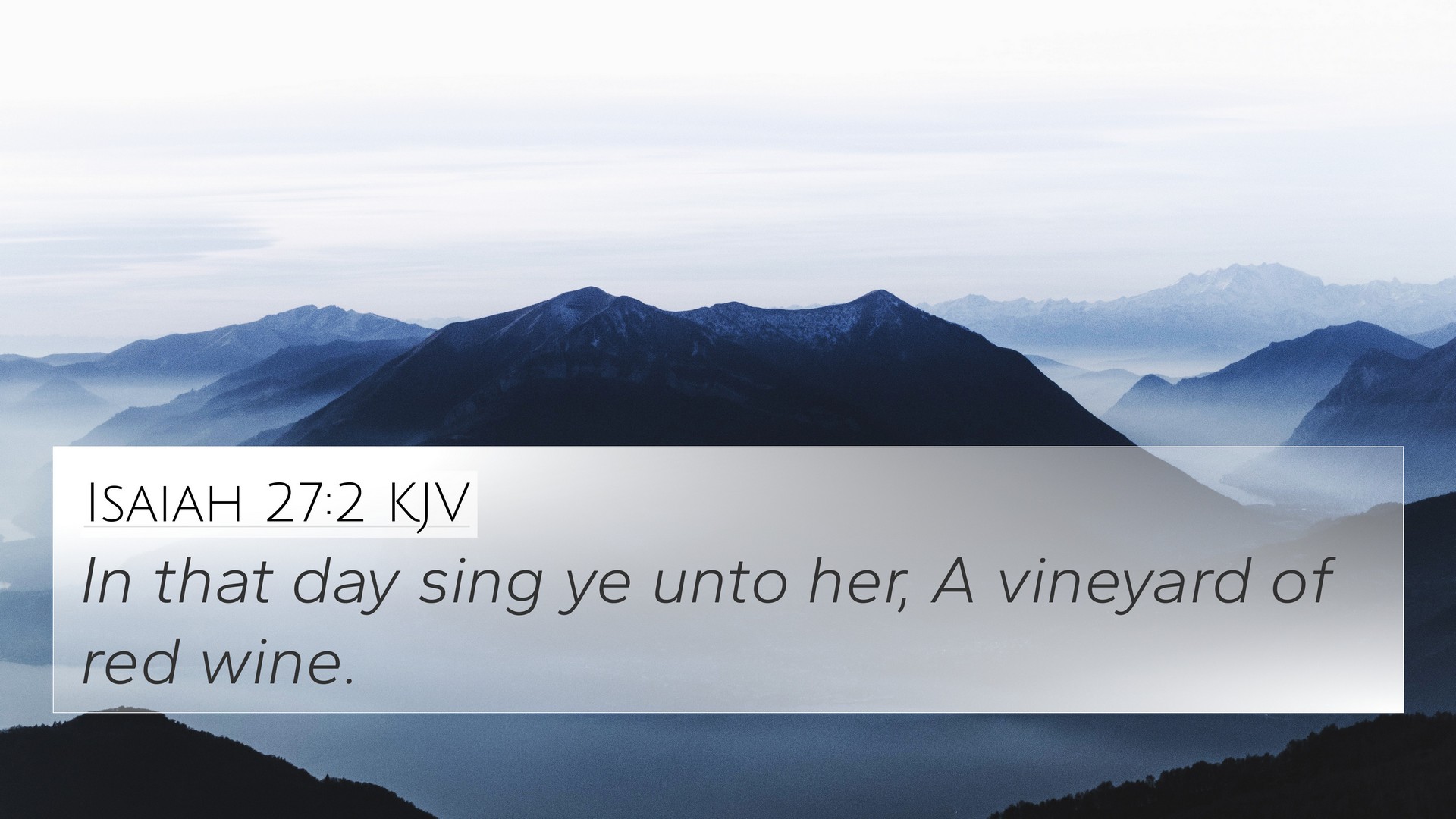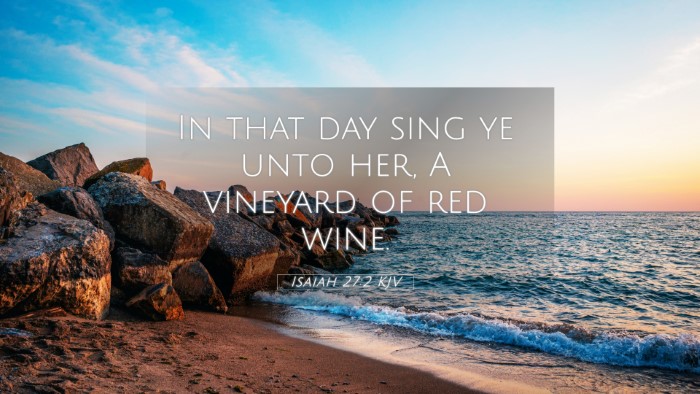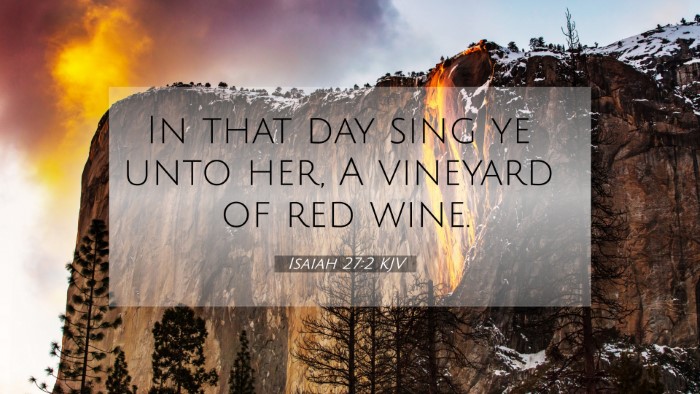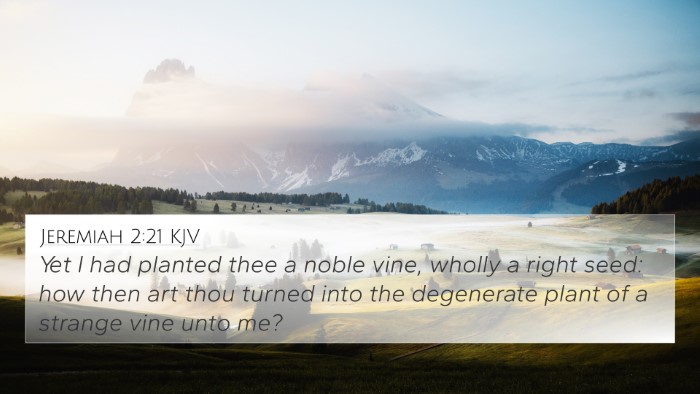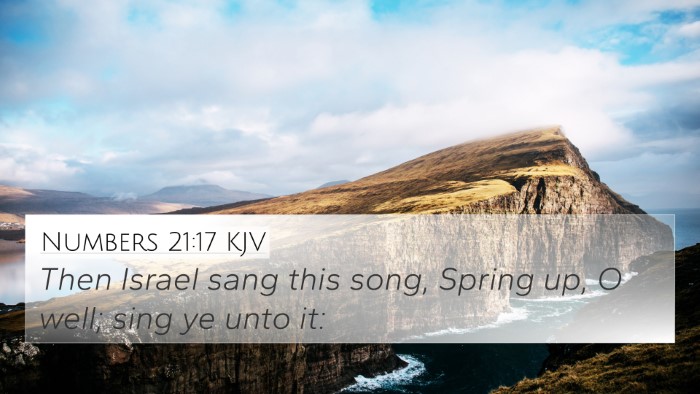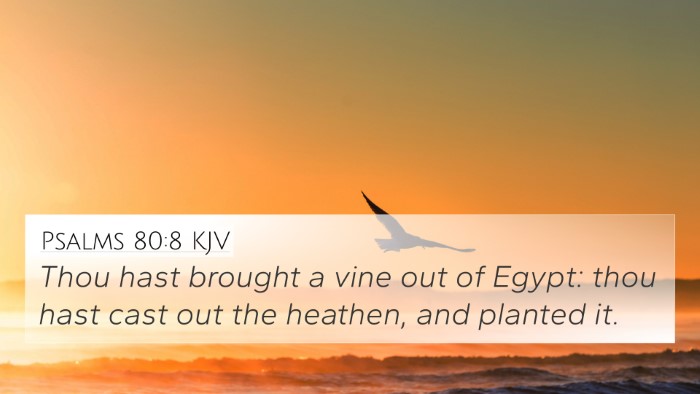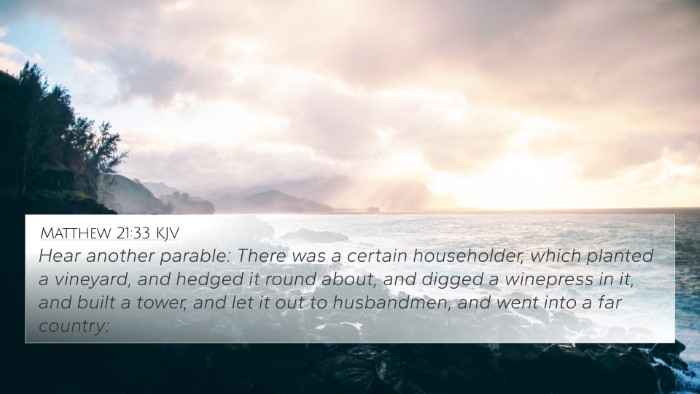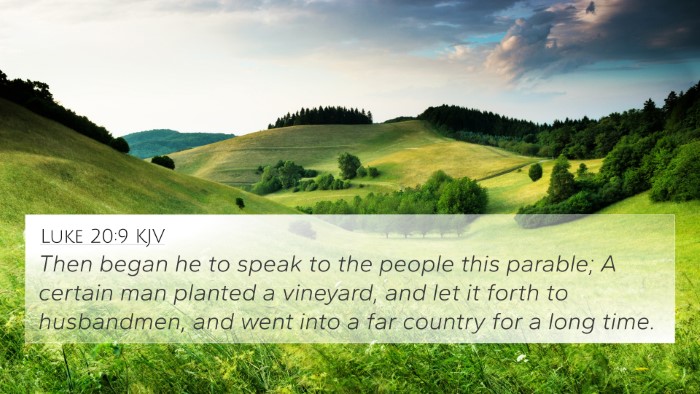Understanding Isaiah 27:2
Verse: Isaiah 27:2 - "In that day, sing ye unto her, A vineyard of red wine." This verse is often understood within the greater context of Isaiah's prophecies addressing Israel's restoration and God's care for His chosen people.
Meaning and Interpretation
This verse is significant in its imagery and what it represents in prophetic terms. The term “vineyard” is a common metaphor in Scripture representing Israel, and the addition of “red wine” can symbolize the blessings and abundance that Israel will experience when reconciled to God.
- Imagery of the Vineyard: The vineyard symbolizes God's people, illustrating both His nurture and the expected fruitfulness of their lives. This theme originates in Isaiah 5:1-7, where Israel is depicted as a vineyard, planted with care yet failing to yield good fruit.
- Joy and Celebration: The call to "sing" indicates a transformation from sorrow to joy. This is further emphasized in Psalms 126:1-3, where the restoration of Zion leads to joyous songs.
- The Day of the Lord: The phrase “In that day” suggests a prophetic future fulfillment, signaling an eschatological event where God's ultimate purpose is realized, similar to prophecies found in Zechariah 14:9.
- The Connection to Redemption: The vineyard relates closely to themes of redemption and restoration found in John 15:1-8, where Christ describes Himself as the true vine, and believers as branches, emphasizing the importance of abiding in Him for fruitful living.
- Divine Care: The mention of wine highlights God's favor and blessings, correlating with passages such as Joel 2:24, which speaks of an abundance of grain and new wine—the signs of God's blessing.
- Contrast with Judgment: Understanding Isaiah 27:2 also requires examining the preceding chapters that deal with God's judgment on Israel's unfaithfulness. This contrast is vital, imparting the message of hope juxtaposed against imminent judgment, as seen in Isaiah 26:20.
- Collective Imagery: Scholars like Matthew Henry highlight this verse's communal aspect, signaling not just individual restoration but national renewal—a theme echoed throughout Israel’s history.
Cross-References and Connections
Isaiah 27:2 has rich intertextual relationships within both the Old and New Testaments, illustrating the continuity of God's message throughout Scripture.
- Isaiah 5:1-2: Depicts Israel as a vineyard, illustrating God's care and expectation.
- John 15:1: Jesus identifies Himself as the true vine, creating a direct analogy with Isaiah's vineyard metaphor.
- Psalms 80:8-11: Another vineyard metaphor that speaks of Israel's plight and God's nurturing role.
- Matthew 21:33-41: The parable of the wicked tenants emphasizes the consequences of failing to steward God's vineyard.
- Romans 11:17-25: Discusses the olive tree metaphor but ties back to Israel's identity and God's unending covenant love.
- Revelation 14:18: References the vintage of the earth, contributing to the theme of divine harvest and judgment.
- Joel 2:23: Speaks of the latter rain and joy in the vineyard—encouraging parallels to Isaiah's message of restoration.
Thematic Study and Conclusions
This prophetic verse encourages personal exploration and thematic understanding through cross-referencing Biblical texts. By identifying connections between these scriptures, one can gain a richer view of God's covenant relationship with His people.
Tools for Bible Cross-Referencing
Utilizing a Bible concordance or cross-reference guide can facilitate deeper study of themes related to Isaiah 27:2. Techniques include:
- Contextual Analysis: Evaluating surrounding verses and chapters helps solidify understanding.
- Comparative Verse Study: Examining the similarities and differences in verses can shed light on the Biblical themes.
- Thematic Grouping: Gathering verses that share common themes provides a broader view of God's message.
Additional Study Resources
For those interested in further exploration, consider the following:
- Bible cross-reference system for tracking related passages.
- Comprehensive Bible cross-reference materials to assist in thematic studies.
- Bible chain references that lead through prophecies, teachings, and ultimate fulfillment.
In conclusion, Isaiah 27:2 invites believers into a deeper understanding of God’s redemptive plan, emphasizing joy and restoration while interlinking with broader Biblical themes. By engaging in comparative Bible verse analysis and utilizing cross-referencing tools, readers can experience the richness of God’s Word in their personal study.
